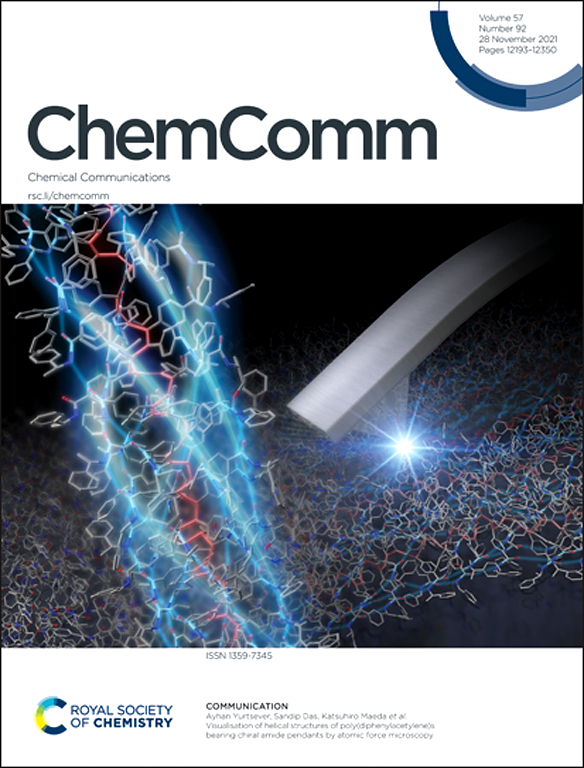三维钴腐蚀基Zr-MOF选择性吸附一氧化碳
IF 4.2
2区 化学
Q2 CHEMISTRY, MULTIDISCIPLINARY
引用次数: 0
摘要
本文介绍了两种基于三苯基苯酚及其金属钴化类似物(CoCorr-MOF)的三维mof。它们具有六角形形貌,颗粒尺寸均匀,微孔比表面积分别为390和304 m²g-1。CoCorr-MOF对CO的亲和力优于其他干扰物(N2、CO2和O2)。其CO吸附量为7.2 cm3 g-1,具有较高的选择性。本文章由计算机程序翻译,如有差异,请以英文原文为准。
3D Cobalt Corrole-based Zr-MOF for the Selective Adsorption of Carbon Monoxide
Two 3D MOFs based on a triphenylcorrole and their cobalt-metalated analogs (CoCorr-MOF) are presented. They show a hexagonal morphology, homogeneous particles size, and a microporosity with a specific area of 390 and 304 m² g-1, respectively. The CoCorr-MOF presents a better affinity for CO than for other interferents (N2, CO2 and O2). It demonstrates a CO sorption capacity of 7.2 cm3 g-1 with high selectivity.
求助全文
通过发布文献求助,成功后即可免费获取论文全文。
去求助
来源期刊

Chemical Communications
化学-化学综合
CiteScore
8.60
自引率
4.10%
发文量
2705
审稿时长
1.4 months
期刊介绍:
ChemComm (Chemical Communications) is renowned as the fastest publisher of articles providing information on new avenues of research, drawn from all the world''s major areas of chemical research.
 求助内容:
求助内容: 应助结果提醒方式:
应助结果提醒方式:


